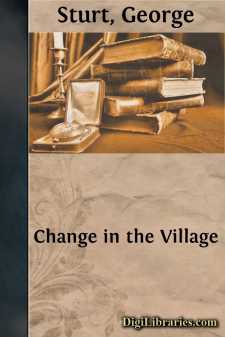Categories
- Antiques & Collectibles 13
- Architecture 36
- Art 48
- Bibles 22
- Biography & Autobiography 813
- Body, Mind & Spirit 142
- Business & Economics 28
- Children's Books 15
- Children's Fiction 12
- Computers 4
- Cooking 94
- Crafts & Hobbies 4
- Drama 346
- Education 46
- Family & Relationships 57
- Fiction 11828
- Games 19
- Gardening 17
- Health & Fitness 34
- History 1377
- House & Home 1
- Humor 147
- Juvenile Fiction 1873
- Juvenile Nonfiction 202
- Language Arts & Disciplines 88
- Law 16
- Literary Collections 686
- Literary Criticism 179
- Mathematics 13
- Medical 41
- Music 40
- Nature 179
- Non-Classifiable 1768
- Performing Arts 7
- Periodicals 1453
- Philosophy 64
- Photography 2
- Poetry 896
- Political Science 203
- Psychology 42
- Reference 154
- Religion 513
- Science 126
- Self-Help 84
- Social Science 81
- Sports & Recreation 34
- Study Aids 3
- Technology & Engineering 59
- Transportation 23
- Travel 463
- True Crime 29
George Sturt
George Sturt (1863–1927), an English writer and essayist, is best known for his works on rural life and the transition from traditional to modern agricultural practices. Born in Farnham, Surrey, Sturt initially worked in his family's wheelwright business, which heavily influenced his writing. His notable works include "The Wheelwright's Shop," where he reflects on the craftsmanship and social changes in rural England, and "Change in the Village," which explores the impact of industrialization on village life. Sturt's writing is celebrated for its vivid portrayal of the vanishing rural world and its deep empathy for working-class communities.
Author's Books:
Sort by:
by:
George Sturt
THE VILLAGE If one were to be very strict, I suppose it would be wrong to give the name of "village" to the parish dealt with in these chapters, because your true village should have a sort of corporate history of its own, and this one can boast nothing of the kind. It clusters round no central green; no squire ever lived in it; until some thirty years ago it was without a resident parson; its...
more...


